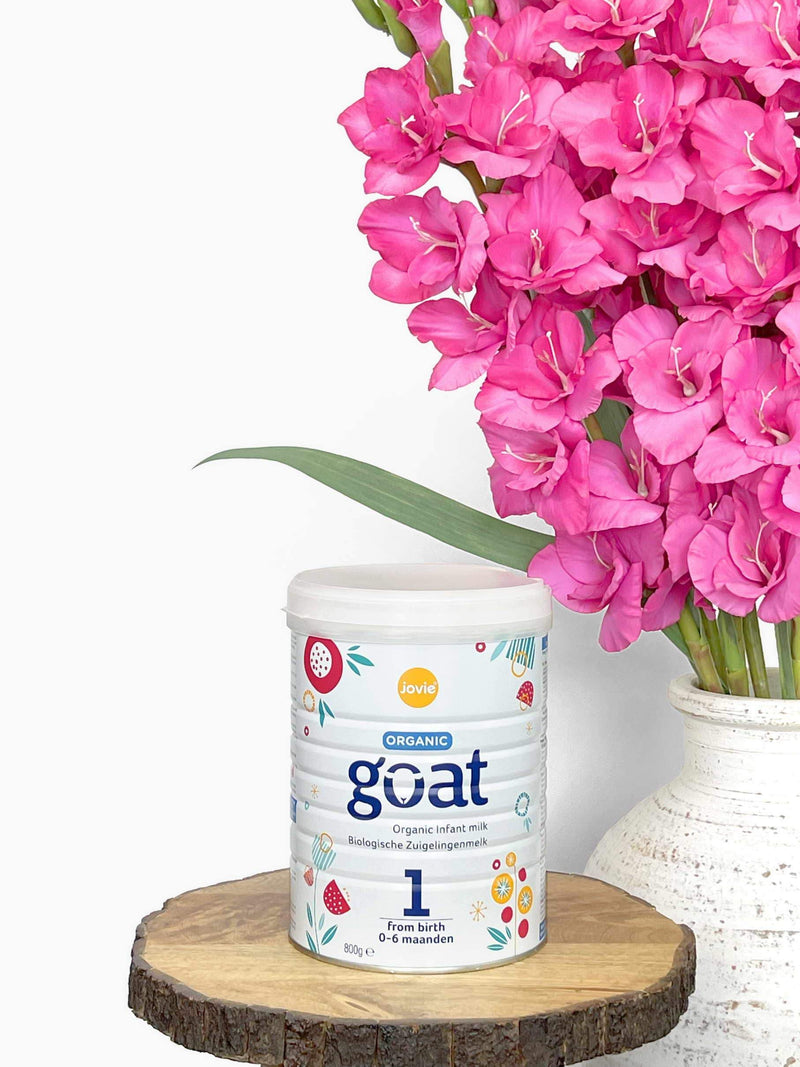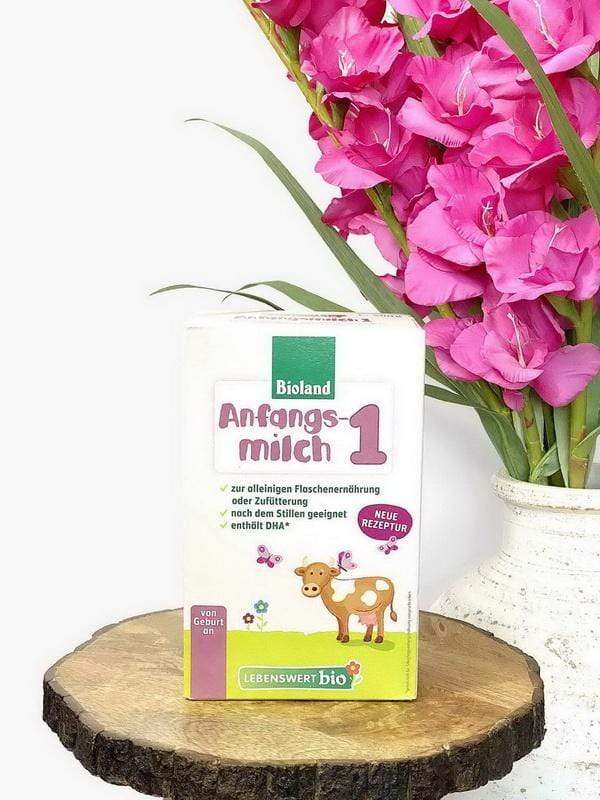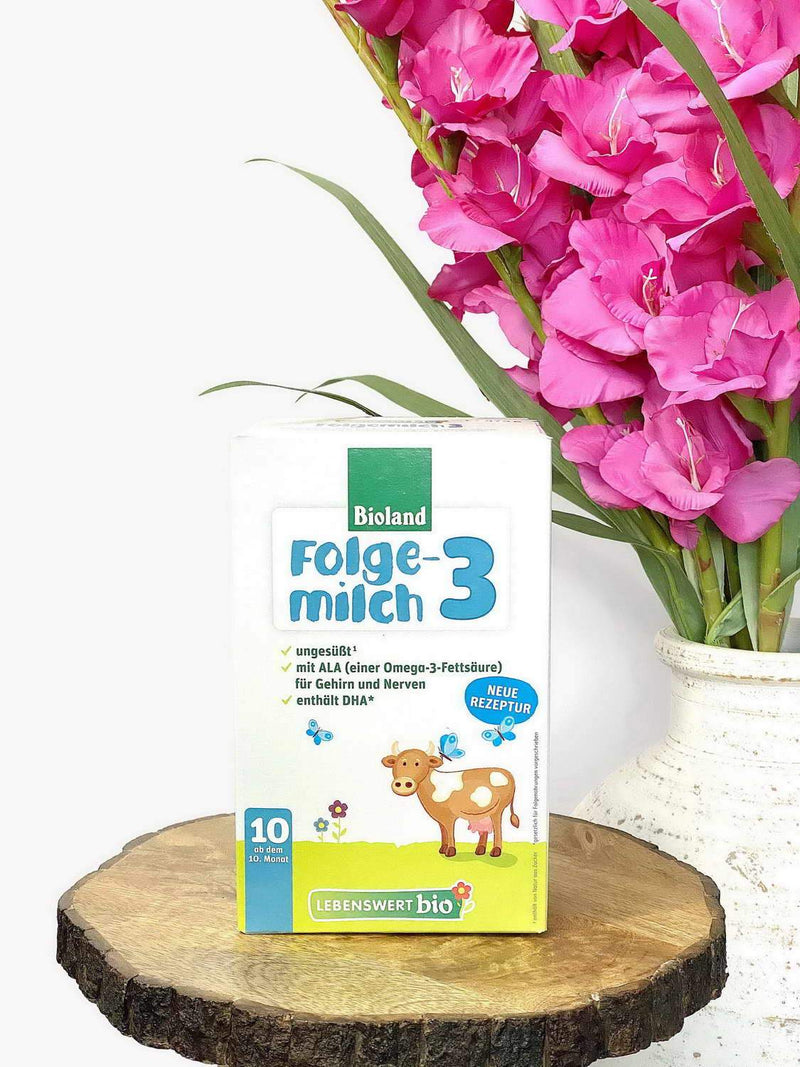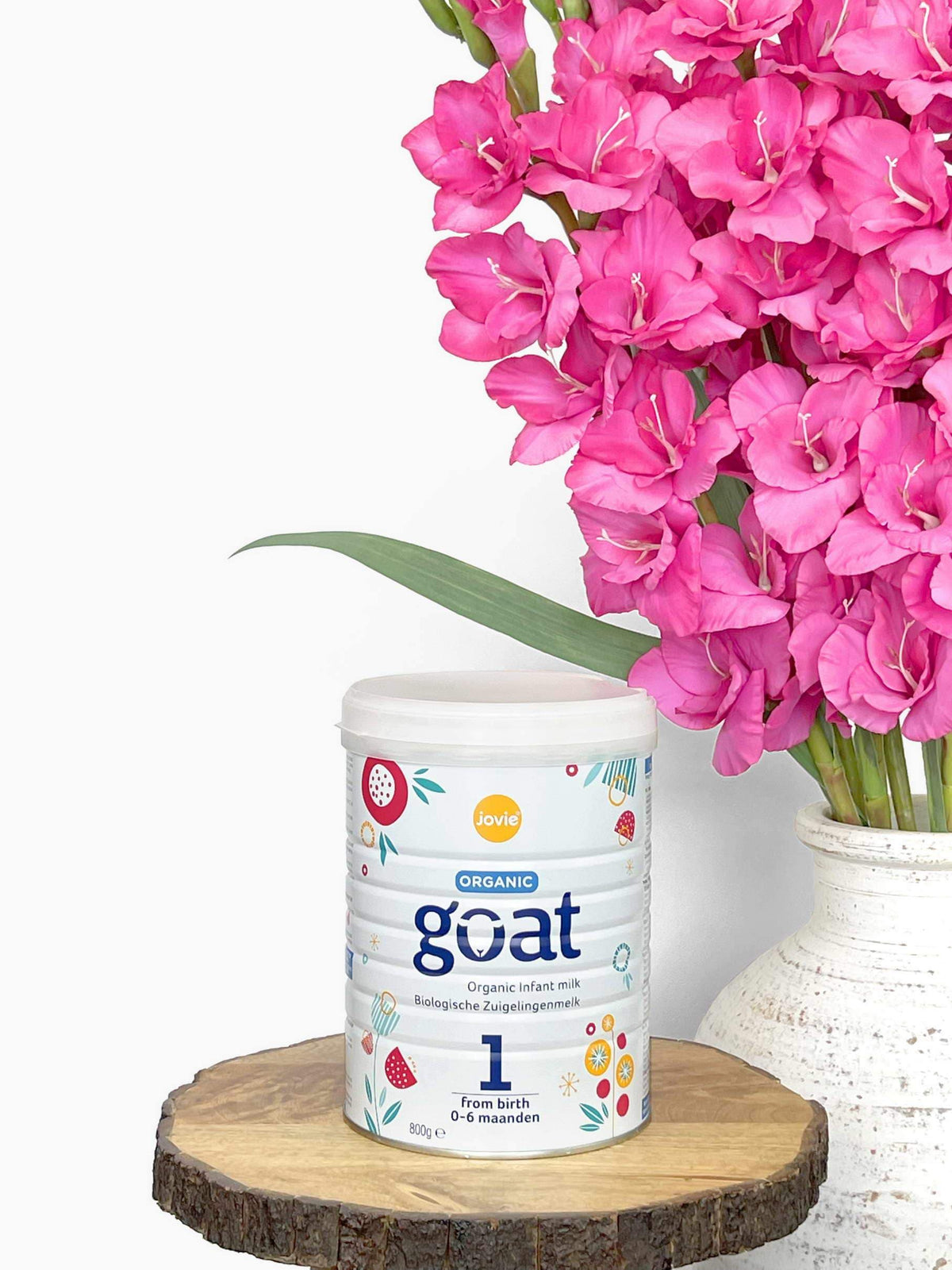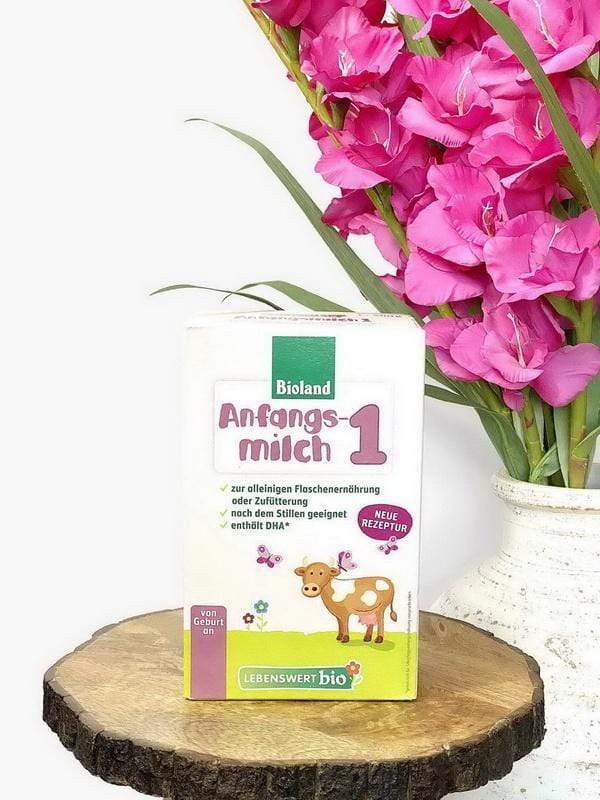When navigating the world of baby formulas, breaking down the ingredient list can be a bit overwhelming. To help simplify this process let’s examine the often overlooked ratio of whey and casein, which make up the protein portion in baby formulas.
Whey and casein ratios are important to understand because the protein source is closely linked to an infant's growth and development. These proportions also can make a difference in more sensitive little ones and those that may have a lactose Intolerance or cow's milk allergy.
What is Whey Protein in Baby Formula?
Casein and whey are the two types of protein found in breast milk and baby formulas that are cow’s milk and goat's milk-based. These superior proteins contain essential amino acids your infant needs for growth and development.
The amino acids in casein and whey perform a number of important and big jobs in your baby's little body.
Phenylalanine: Plays an integral role in the structure and function of proteins and enzymes and the production of other amino acids.
Valine: Helps to stimulate muscle growth, regeneration, and is involved in energy production.
Threonine: Plays a role in fat metabolism and immune function.
Tryptophan: Needed to maintain proper nitrogen balance and helps to regulate your appetite, sleep, and mood.
Methionine: Important for metabolism and detoxification. Methionine is also necessary for tissue growth and the absorption of zinc and selenium, minerals that are vital to your health.
Leucine: Critical for protein synthesis and muscle repair. Leucine also helps regulate blood sugar levels, stimulates wound healing, and produces growth hormones.
Isoleucine: Important for immune function, hemoglobin production, and energy regulation.
Lysine: Plays major roles in protein synthesis, hormone and enzyme production, and the absorption of calcium.
Histidine: Used to produce histamine, a neurotransmitter that is vital to immune response, digestion, and sleep-wake cycles.
Clearly, amino acids found in the protein form of whey and casein are at the very core of many vital processes. They are especially notable in their role in muscle development and repair that is crucial at this stage of growth in all infants.
Finding a balance of whey and casein to give your little one all of the needed amino acids is critical when searching for the perfect baby formula. Deficiencies can negatively impact your infant's entire body including the nervous, reproductive, immune, and digestive systems.
Difference between Whey and Casein in Baby Formula
Beyond the amino acid properties in the whey and casein found in baby formula are key beneficial attributes.
What is Whey in Baby Formula?
Whey is part of the protein profile in breast milk and formulas that are cow’s milk and goat's milk-based. This is a fast digesting protein for the healthy boost of energy needed for growth and development. Here are some of the other benefits of whey:
✓ High-quality source of protein
✓ Promotes muscle growth and development
✓ Supports circulatory function
✓ Supports antioxidant defenses
✓ Promotes healthy weight and metabolism
What is Casein in Baby Formula?
Casein is a slow-digesting protein portion of breast milk and baby formulas that are cow’s milk and goat's milk-based. What are the benefits of casein?
✓ Takes longer to digest, keeping your baby full
✓ Important for muscle growth and development
✓ Supports the immune system
✓ Helps maintain healthy triglyceride levels
✓ Promotes antioxidant function
✓ Promotes healthy weight and metabolism
Whey to Casein Ratio in Formula
We can see that whey and casein have similar benefits with an important difference being in the way they are digested. This is very important to note when understanding infant formula tolerability and digestibility. The ratio of whey to casein might be part of a formula that would make it easiest to digest.
Below is a chart that provides the whey to casein ratios for the formulas My Organic Company carries:
Whey Protein vs Casein Protein Baby Formula
Using the information that we found with the difference between whey and casein, how they are digested, and the casein protein to whey protein ratio in human milk vs. casein protein to whey protein ratio in cow milk and goat milk-based formulas we come to an easier understanding of tolerability.
Keep in mind that formulas made up of a higher percent of whey, which makes them easy to digest and empty the stomach faster, may be easier for the sensitive little ones.
Casein vs Whey Baby Formula
Pure, clean ingredients that you can trust without chemicals, additives, or unwanted toxins and finding the perfect ratio of whey to casein is a big part of choosing the most complete and nutritious baby formula to support the healthy growth and development of your little one.
Here at My Organic Company we strive to bring your family nutrition you can feel confident in but also the support to help you make the best decisions in infant nutrition.
We look forward to walking this journey with you in finding the perfect breast milk substitutes or alternatives.

